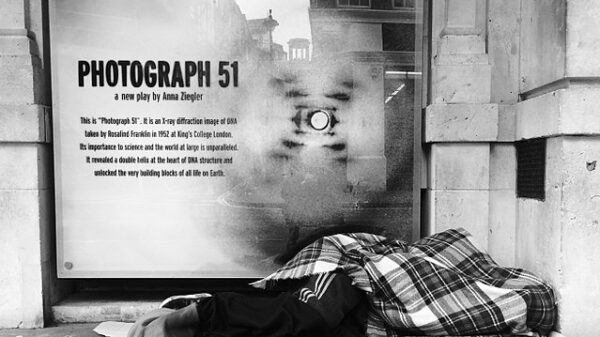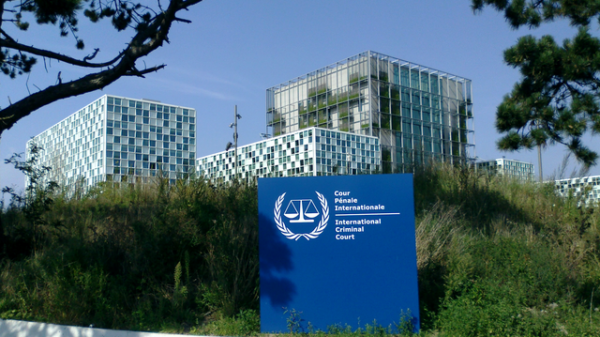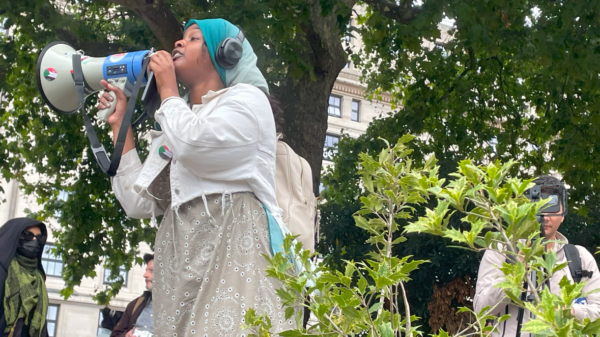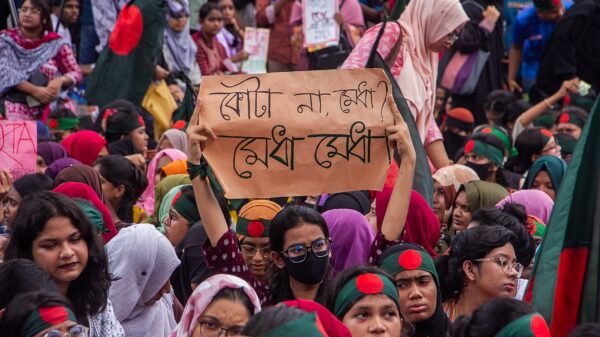Staff writer and CAMERA on Campus fellow Patrick Schnecker argues that some of the actions taken by pro-Palestinian groups have amounted to antisemitism and that not enough is being done to tackle the rise in anti-Jewish hate.
On 7 October 2023, Hamas led the single deadliest attack on the Jewish people since the Second World War. Since then, thousands of anti-Zionists have continued to gather in the streets of London every Saturday (during the weekly Jewish Sabbath) to lambast Israel’s attempts to detain mass murderers and save hostages. People have openly threatened to attack synagogues.
On campuses, Jewish university students have been spat on, bombarded with death threats, and are routinely subjected to classic antisemitic threats. Calling for a violent uprising against Israel has become a recurring theme in British academia, epitomised by the Oxford’s University and College Union submitting a motion that openly questioned the security of the Jewish State, calling for “intifada until victory”.
Since 1986, UK Law has criminalised two types of speech relevant to this topic: threatening, abusive, or insulting language and content, including public displays, that cause “harassment, alarm or distress“ to others. This includes expressions made with the intent to provoke racial hatred or that have the potential to incite it. Racial hatred is defined as hostility directed towards someone based on “colour, race, nationality (including citizenship), or ethnic or national origins“.
Between spreading outright falsehoods and clever manipulations of the truth, some anti-Zionists have clearly violated UK laws banning hate speech to justify such violence. So why haven’t the authorities stepped in yet? One possible explanation might stem from the confusion sparked by the pervasive yet hollow belief that pro-Palestinian anti-Zionism is not antisemitic.
Not only does this not stand up to reason – that out of all countries in the world, only the Jewish State should not exist – but the mere fact of denying Jews access to the universal human right of self-determination and self-defence is bigoted.
Rather than responding directly to this, anti-Israel activists spin their irrational hatred into empathetic humanitarian identities. How could advocating for Palestinian human rights be bigoted? Since human rights are universal and advocating on behalf of those who lack them should never be suppressed, how could any sane person possibly label pro-Palestinian activism (i.e. anti-Zionism) as antisemitism? This is the central bait and switch.
While on paper, granting legitimate human rights to one group should not require taking away the very same rights from Jews, pro-Palestinian activism often demands just that. It’s as if these activists believe that all Jews existing in Israel infringe on Palestinians’ ability to do the same (it doesn’t), and therefore, Jews shouldn’t be allowed to live or participate in their own democratic country.
On top of ignoring this reality, many cling to the belief that this is nothing but a call for freedom, even while some of those at the marches glorify the openly genocidal Hamas, champion Nazi-style antisemitic propaganda and promote Holocaust inversion by holding up signs that place the swastika inside of the Jewish Star of David.
This manipulation of language and context to obscure intent is a common method employed in campus activism. On 8 November 2023, student groups at King’s College London openly called for an ‘intifada until victory’.
Though in Arabic, “intifada” just means “shaking off”, the two recent eras labelled as “intifadas” entailed attacks reminiscent of October 7 – rioters and Palestinian militant groups indiscriminately murdering hundreds of Jews and Israelis. What could this slogan (displayed in front of the university’s entrances) mean other than a call for more Jews to be killed?
Even the normalised chant “From the River to the Sea, Palestine will be free”, heard at every protest, is itself a call to harm Jews. Those with Israeli citizenship aren’t allowed citizenship or access to the current Occupied Territories and likely won’t in a future state of Palestine. Therefore, demanding that Palestine will only be free once Israel is destroyed from the Jordan River to the Mediterranean Sea (i.e. all of Israel), at the least calls for 7 million Jews to be forcibly expelled from their homes.
It’s plain to see that the nature of these pro-Palestinian chants conveys a level of discrimination that should not be legally tolerated by the police, let alone by universities, as seen by the treatment of any other vulnerable group. This begs the question, how does this moral double standard contribute to improving the human rights of Palestinians, who suffer under the corruption and oppression of both Hamas and the Palestinian Authority?
It is not a coincidence that the exponential rise of antisemitism in wider society has mirrored the rise in this brand of pro-Palestinian activism. Fuelled by either prejudice, ignorance, or naiveté, the reluctance of authorities to hold these activists accountable to the law seems to rest on the assumption that there is no other way to advocate for Palestinians. If this is true, what does it say about the movement as a whole? If it’s not, who will hold these antisemites accountable?
Antisemitism is a real issue that should not be undermined in today’s British society. Jewish students are feeling increasingly at risk of antisemitic hate crimes, with such poisonous actions already occurring at an unacceptable rate. University leaders cannot stand aside without accepting that they are putting Jewish students in great danger. Should British universities decide to ignore this issue any longer, UK academia will risk becoming a “no-go zone” for Jewish students.



















